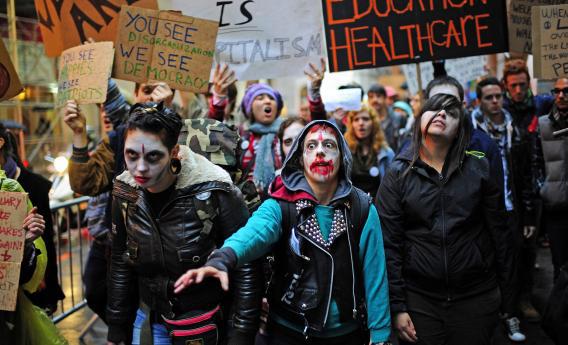Rasmussen Reports returns from the field with what I think is the first poll about Occupy Wall Street. The buried lede: At the moment, the protesters who’ve been mocked on CNN and Fox News, accused of class warfare by Mitt Romney, and handled delicately by the White House, have… decent favorable ratings.
Americans are divided on the protestors themselves. Thirty-three percent (33%) have a favorable opinion, 27% hold an unfavorable view, and a plurality of 40% have no opinion one way or the other. Fifty percent (50%) of Democrats have a favorable opinion while a plurality of Republicans (43%) say the opposite. Among those not affiliated with either major party, a solid plurality (45%) have no opinion. Most unaffiliateds are not following the story.
Will that number hold up as the movement gets more coverage? Who knows. It didn’t hold up for the Tea Party. But one way of looking at this is that the Occupy Wall Street movement is more than twice as popular as Congress. Because of that low engagement number, it’s technically more popular than the Tea Party. In an August Rasmussen poll, 43 percent of Americans considered “Tea Party” a negative label, and 29 percent considered it positive.
The message is more popular: Seventy-nine percent of Americans “agree with the statement that the ‘The big banks got bailed out but the middle class got left behind.’” (The way I heard the chant on Friday: “Banks got bailed out, we got sold out.”) This is the context for the steady roll of Democratic endorsements; today, Russ Feingold.
The poll was conducted on Monday and Tuesday, with a sample of 1,000 adults.
